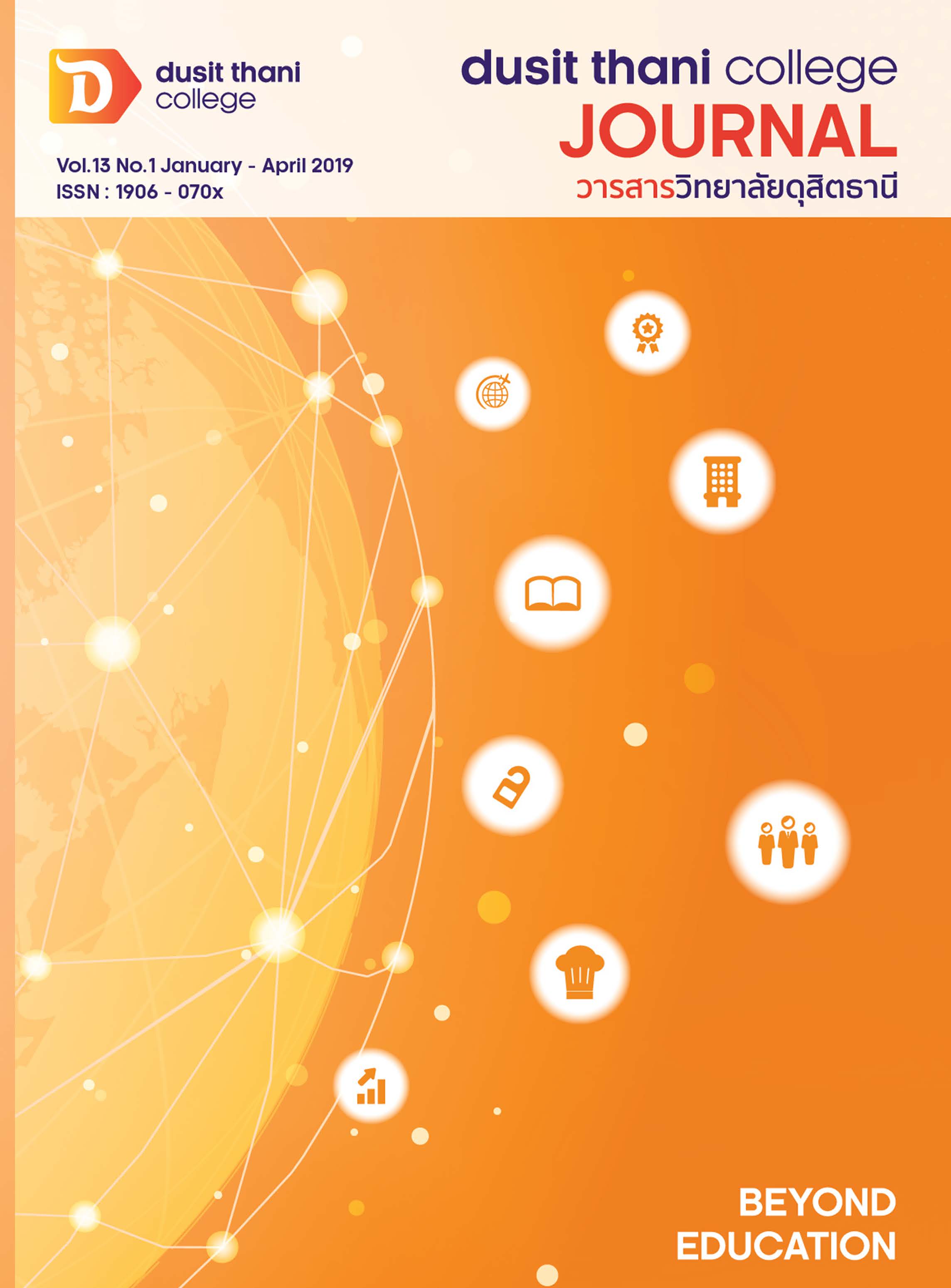Factors Affecting Perceive to Tourists Information of Second Tier and Third Tier Chinese Tourists Travelling to Thailand
Main Article Content
Abstract
The objectives of this mixed method of qualitative and quantitative study were to : 1) study the behavior of the travelling group of middle-income and low-income tourists (Group Second Tier and Third Tier) in Thailand, 2) study behavior of exposure to travel information of second tier and third tier Chinese tourists travelling to Thailand, 3) compare exposure to travel information of second tier and third tier Chinese tourists travelling to Thailand, and 4) study (analyze) factors affecting exposure to travel information of second tier and third tier Chinese tourists travelling to Thailand, The population of the study was Chinese tourist groups including middle-income and low-income travelers in Thailand. The samples of this research consisted of 500 tourists who were divided into a group of middle-income and low-income. In terms of data collection, a set of questionnaires was used to collect data and the data was analyzed by descriptive statistics which included percentage, Chi-Square and Regression.
Research instruments in this study included In-depth interview, questionnaire, observation, and documentary review. Qualitative data were analyzed by using content analysis and systematic synthesis, whereas descriptive statistics were used for quantitative data. Results of the study were as follows:
The results revealed that 1) the behavior of the travelling group of middle-income and low-income tourists (Group Second Tier and Third Tier) in Thailand was different with significant level of 0.05 2) Behavior of exposure to travel information of second tier and third tier Chinese tourists travelling to Thailand was different with statistically significant level of 0.05 3) compare exposure to travel information of second tier and third tier Chinese tourists travelling to Thailand was different with statistically significant of 0.05. 4) Factors affecting exposure to travel information of second tier and third tier Chinese tourists travelling to Thailand was different with statistically significant of 0.05.
Article Details
Article Screening Policy
- All research and academic articles to be published must be considered and screened by three peer reviews in the relevant field / article.
- All articles, texts, illustrations and tables published in the journal are the personal opinions of the authors. Editors don't always have to agree. And no responsibility whatsoever is the sole responsibility of the author.
- The articles to be published must never be published. Where did you first publish? And not in the consideration of other journals If the audit found that there has been a duplicate publication It is the sole responsibility of the author.
- Any article that the reader sees as being plagiarized or impersonated without reference. Or mislead the work of the author Please let the journal editor know it will be your greatest blessing.
References
Leadershipin Organizations.2nd ed. Englewood Cliffs, NJ : Prentice-. Hall.
2. China National Tourism Administration.(2015).China tourism experts and tourism scholars. China National Tourism Agency.
3. David L. Loudon and Albert J. Della Bitta.(1993) Consumer Behavior: Concepts and NewYork :McGraw - Hill International, Inc.
4. Defleur and Bcll-Rokeaoh.(1996).Social Categories Theory. Washington Dc.
5. Suthep Pongkiew and Nucharee Pachate (2017)"The Competitive Model of OTOP
Entrepreneurs “As SMEs in Thailand”. Veridian E-Journal Silpakorn University Thai
Version Humanities, Social Sciences and the Arts, 9 (3): 1677-1693.
6. Henry B, Caspi.(1995). Recent findings from a program of research on the causes and
correlates of delinquency. Washington Dc.
7. Kuljitjuewong, Supasil. (2012). “The evolution of communication in the future, 2012”.
Veridian E-Journal 5, 2 (May-August) : 59-70.


